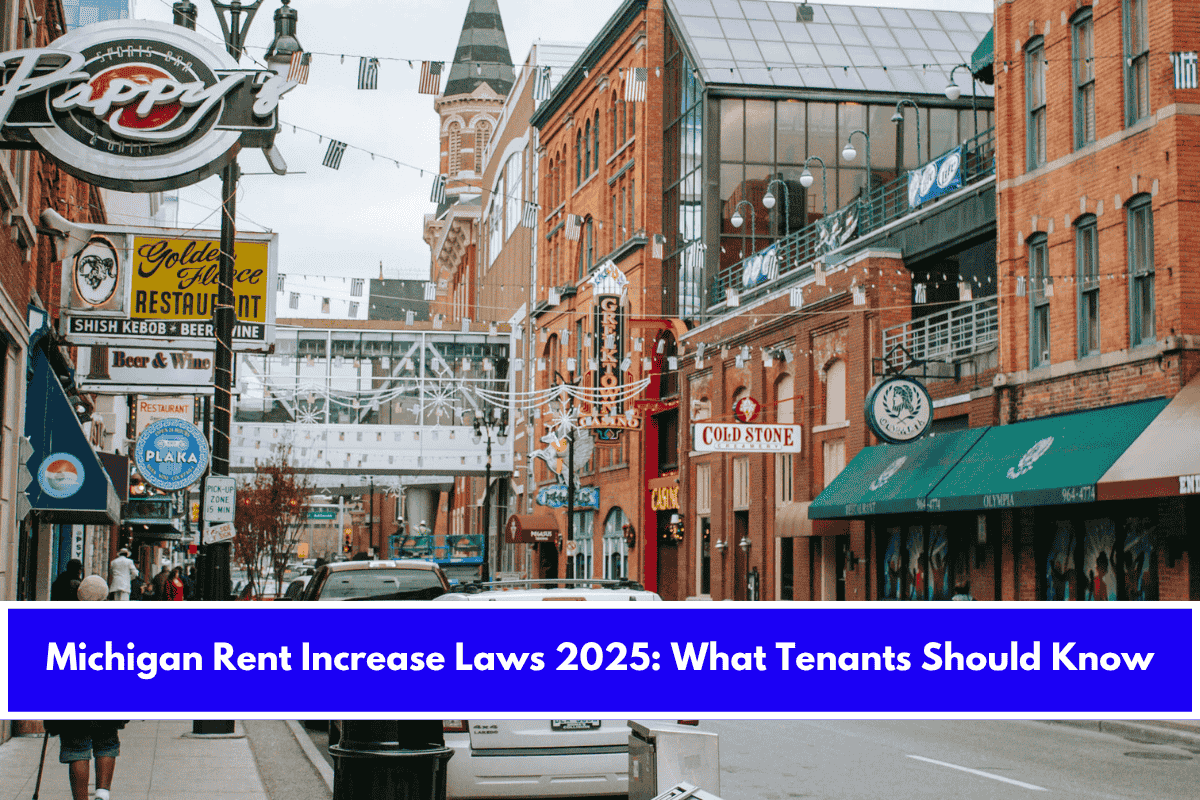Michigan’s rent increase laws for 2025 remain largely unchanged from previous years, but tenants should be aware of a few key protections and requirements that govern how and when landlords can raise rent.
Key Points: Michigan Rent Increase Laws
No Statewide Rent Control or Cap
- Michigan has a statewide ban on rent control, enacted in 1988. This means there is no legal limit on how much a landlord can increase rent, as long as the increase follows the terms of the lease or, for month-to-month tenants, is accompanied by proper notice.
- Local governments are prohibited from enacting rent control ordinances, so market forces primarily dictate rental prices.
Notice Requirements
- For month-to-month tenants: Landlords must provide at least 30 days’ written notice before a rent increase if the tenant has lived in the unit for less than a year; 60 days’ notice is required if the tenant has lived there for more than a year.
- For fixed-term leases: Rent cannot be increased during the lease term unless the lease specifically allows it. Any increases must wait until the lease expires.
Lease Terms Take Precedence
- The terms of the lease agreement control the timing and amount of rent increases. If the lease specifies a notice period or limits on increases, the landlord must follow those terms.
Prohibited Practices
- Discriminatory Increases: Landlords cannot raise rent in a discriminatory manner based on race, color, religion, sex, national origin, familial status, or disability.
- Retaliatory Increases: Rent cannot be increased in retaliation for a tenant exercising their legal rights, such as making a complaint or joining a tenant union.
Other Tenant Protections
- Withholding Rent: If a landlord fails to make necessary repairs or comply with health and safety laws, tenants may be able to withhold rent or make repairs and deduct the cost from rent, but strict procedures must be followed.
- Late Fees and Bounced Checks: There are no statutory limits on late fees, but bounced check fees are capped at $25 (if paid within seven days of the due date) or $35 (if paid within 30 days).
What Should Tenants Do?
- Review Your Lease: Understand the terms regarding rent increases and notice periods.
- Know Your Rights: Be aware that rent cannot be increased during a fixed lease term unless the lease allows it.
- Watch for Notice: Make sure any rent increase comes with proper written notice.
- Report Discrimination or Retaliation: If you suspect a rent increase is discriminatory or retaliatory, contact a tenant rights organization or attorney.
- Stay Informed: Keep up with local and state legislative changes, as advocacy for rent control continues in Michigan.
Summary Table
| Situation | Requirement/Limitation |
|---|---|
| Rent increase during lease | Not allowed unless lease permits |
| Notice for month-to-month tenant | 30 days (<1 year in unit); 60 days (>1 year in unit) |
| Maximum rent increase | No state or local cap |
| Discriminatory/retaliatory hike | Prohibited |
| Local rent control | Banned statewide |
Tenants in Michigan should know that while there are no caps on rent increases, landlords must follow notice requirements and cannot raise rent during a fixed lease term unless the lease allows it.
Discrimination and retaliation are prohibited, and the lease agreement is the primary guide for rent increases. With no rent control in place, tenants are encouraged to stay informed and advocate for their rights.
Sources:
- https://www.hemlane.com/resources/michigan-rent-control-laws/
- https://www.steadily.com/blog/how-much-can-a-landlord-raise-rent-in-michigan
- https://www.landlordstudio.com/landlord-tenant-laws/rent-increase-laws-in-michigan
- https://innago.com/michigan-landlord-tenant-laws/











Leave a Reply